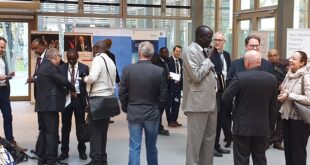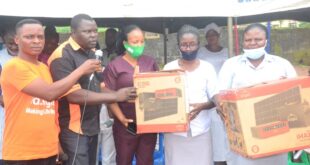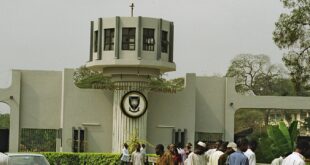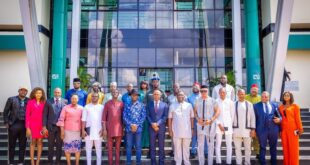- First multi-stakeholder initiative to address global mobile internet access gap has been launched by Vodafone Group and the International Telecommunication Union (ITU) as co-chairs via a dedicated Working Group under the auspices of the ITU/UNESCO Broadband Commission for Sustainable Development.
- Of the 3.7 billion people not connected to the internet, 3.4 billion live within range of mobile networks but are currently not accessing the internet, partly due to a lack of smartphone ownership.
- Accelerated use of digital public services during the pandemic, mobile money, and the need for digital skills for jobs has made mobile internet access through a smartphone more important than ever.
UNGA, New York, September 20, 2021 -/African Media Agency(AMA)/- A major new initiative has been launched by Vodafone Group Plc and International Telecommunication Union (ITU), the United Nations’ specialised agency for information and communication technologies, to address the global digital divide, with the aim that an additional 3.4 billion people could have the ability to access and use the internet through a smartphone by 2030.
With mobile broadband (4G) networks now covering 82% of the population of Low- and Middle-Income Countries (LMICs), the mobile usage gap is 6x larger than the mobile coverage gap.
In line with the Broadband Commission Global Targets 2025 on affordability and connectivity, the new Working Group will identify policy, commercial and circular-economy interventions to increase smartphone access.
Co-chaired by Vodafone Group CEO, Nick Read, and ITU Secretary-General Houlin Zhao, the Group’s launch partners also include: the Alliance for Affordable Internet; GSMA; the government of Ghana; Safaricom; Smart Africa; Vodacom Group; and the World Wide Web Foundation.
Mobile accounts for 86% of connections to the internet in LMICs, emphasising the importance of mobile in addressing this issue. Yet billions of people continue to use ‘dumb’ feature phones, without an internet connection, and the 2G market continues to grow. That means the digital divide is widening as the global pandemic has accelerated the emergence of digital societies and smartphones are increasingly an essential gateway to access public services – including education and medical support – financial services, jobs and to run businesses.
Nick Read, CEO of Vodafone Group, said: “Vodafone is honoured to be part of this monumental global initiative with the UN, to improve the lives of billions of people through smartphone access. As our societies become more digital, everyone should have the ability to find jobs, be able to get public services, financial services and critical information that are increasingly only available through the internet. This is such a complex challenge that no network operator, device manufacturer, financial services provider or national government can solve on their own – but working together we can break through the barriers.”
Shameel Joosub, CEO of Vodacom Group said: “We are aware of the many different socio-economic complexities and dynamics which continue to prevent universal digital access in modern society, which should be a right and not a privilege. The pledge by the United Nations, Vodafone Group Plc and the ITU to increase smartphone access for 3.4 billion people around the world is timely and important. As Vodacom works to connect the next 100 million African people through its Africa.Connected campaign, we look forward to supporting Vodafone’s ambition to ensure that no one is excluded from the global digital economy, and may enjoy access to education, jobs, public and financial services.”
Houlin Zhao, Secretary General of the ITU, said: “Achieving the Broadband Commission Global Targets requires a multi-stakeholder approach. I am pleased to co-chair this newly established Working Group, which will also help address the challenges posed by the COVID-19 pandemic and ensure that we put smart devices in the hands of those who are left behind.”
Maria-Francesca Spatolisano, Officer-in-Charge of the Office of the United Nations Secretary-General’s Envoy on Technology, said: “The UN Secretary General’s Roadmap for Digital Cooperation aims to achieve universal connectivity by 2030. Smartphone access is a key element of this in low- and middle-income countries where mobile is the principal route to the internet. As such, this working group can have an important role in ensuring that the shift to digital technology is beneficial and makes our societies more equal and not less.”
The Honourable Ursula Owusu-Ekuful, Minister for Communications and Digitalisation, Ghana, said: “While Ghana and other countries have made great strides in the development of mobile infrastructure and the usage of digital services such as mobile money, it is noticeable that 45% of people in West Africa are covered by mobile broadband networks but do not use the internet. Addressing the mobile internet usage gap is vital for the long-term economic development of my country and many others across the world and will require new partnerships and focused action from a range of organisations.”
The Broadband Commission Working Group will produce a report and set of concrete recommendations including:
- original analysis and data on the smartphone access gap;
- quantification of the social and economic impact of providing everyone with smartphone access by 2030, including assessment of moving users from 2G feature phones to 4G smartphones; and
- analysis of initiatives or pilots designed to increase smartphone access. Vodafone Group has committed to launch two pilot projects on device affordability as part of this process.
“This partnership is key to expand access to the internet,” said Doreen Bogdan-Martin, Director of the ITU Telecommunication Development Bureau. “I am confident that the outcome report will provide guidance to all our stakeholders as we prepare for the ITU World Telecommunication Development Conference in 2022 to build a world where no one is left off-line.”
To coincide with the creation of the new Working Group, Vodafone, Vodacom and Safaricom have also published the second ‘Africa.Connected’ report today on accelerating 4G for sub-Saharan Africa. The report, by independent consultancy Caribou Digital, suggests a multi-stakeholder approach with four key steps to enhancing digital inclusion across African nations, where the mobile usage gap is the largest in the world:
1. Making 4G devices more accessible – Nearly 2.5 billion people live in countries where the cost of the cheapest available smartphone is unaffordable. Expanding device financing schemes for those with poor or no credit history; reducing the amount of tax on 4G smartphone imports and increasing local manufacturing of devices within Africa are suggested as ways to address this issue.
2. Invest in the demand for 4G services – 375 million young Africans are expected to enter the labour market by 2030 and will need the skills to excel in a digital economy. The report suggests increasing financing and support for digital start-ups and that device manufacturers could create more inclusive products.
3. Providing targeted financing for underserved demographics – Programmes need to take account of, and target, the large gender gap and rural-urban gap that exist in respect of device ownership in sub-Saharan Africa.
4. Re-farming 2G spectrum – Repurposing mobile spectrum currently used for 2G devices would enable more people to use 4G.
© African Media Agency (AMA)
 THE AFRICAN COURIER. Reporting Africa and its Diaspora! The African Courier is an international magazine published in Germany to report on Africa and the Diaspora African experience. The first issue of the bimonthly magazine appeared on the newsstands on 15 February 1998. The African Courier is a communication forum for European-African political, economic and cultural exchanges, and a voice for Africa in Europe.
THE AFRICAN COURIER. Reporting Africa and its Diaspora! The African Courier is an international magazine published in Germany to report on Africa and the Diaspora African experience. The first issue of the bimonthly magazine appeared on the newsstands on 15 February 1998. The African Courier is a communication forum for European-African political, economic and cultural exchanges, and a voice for Africa in Europe.






















